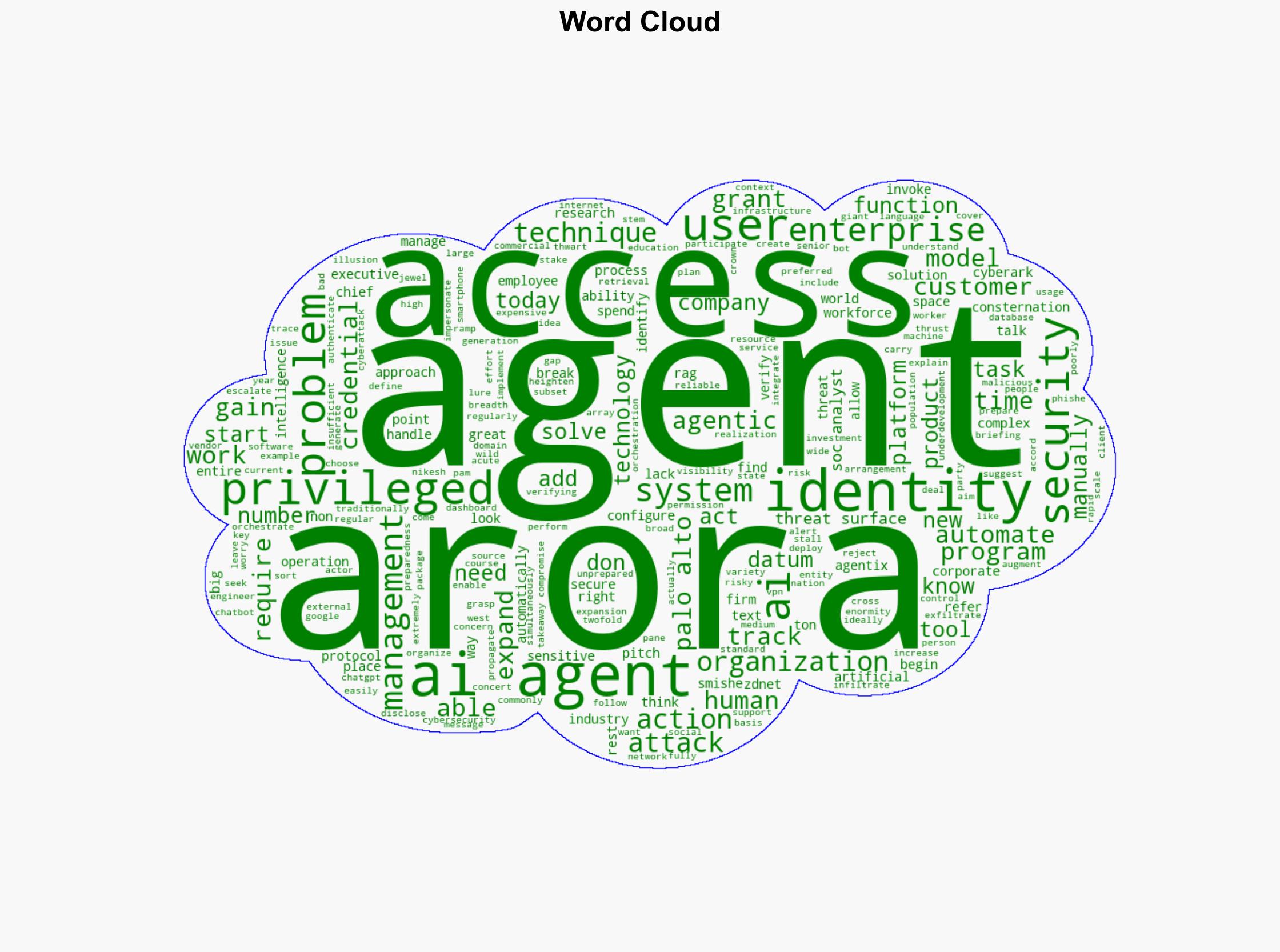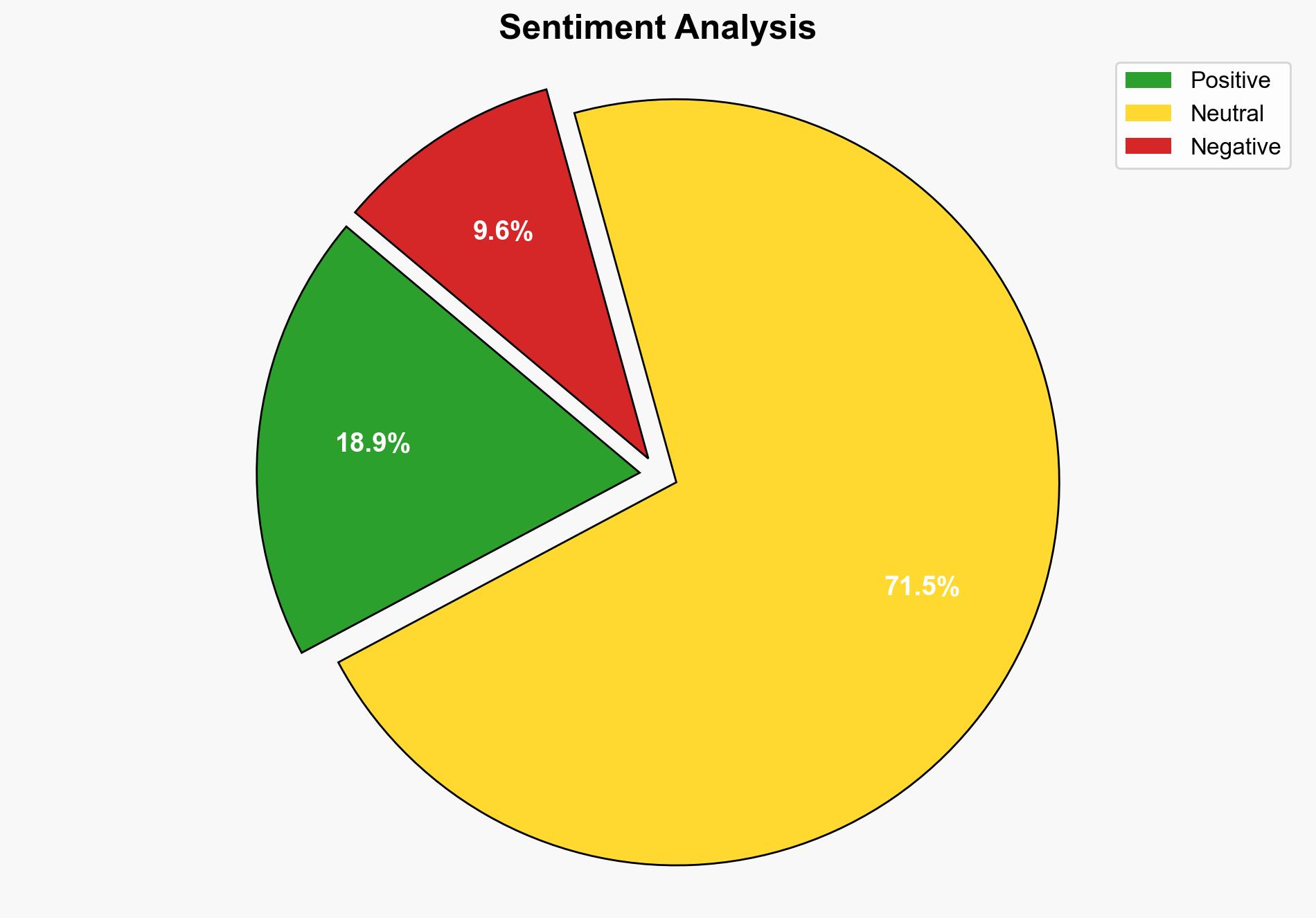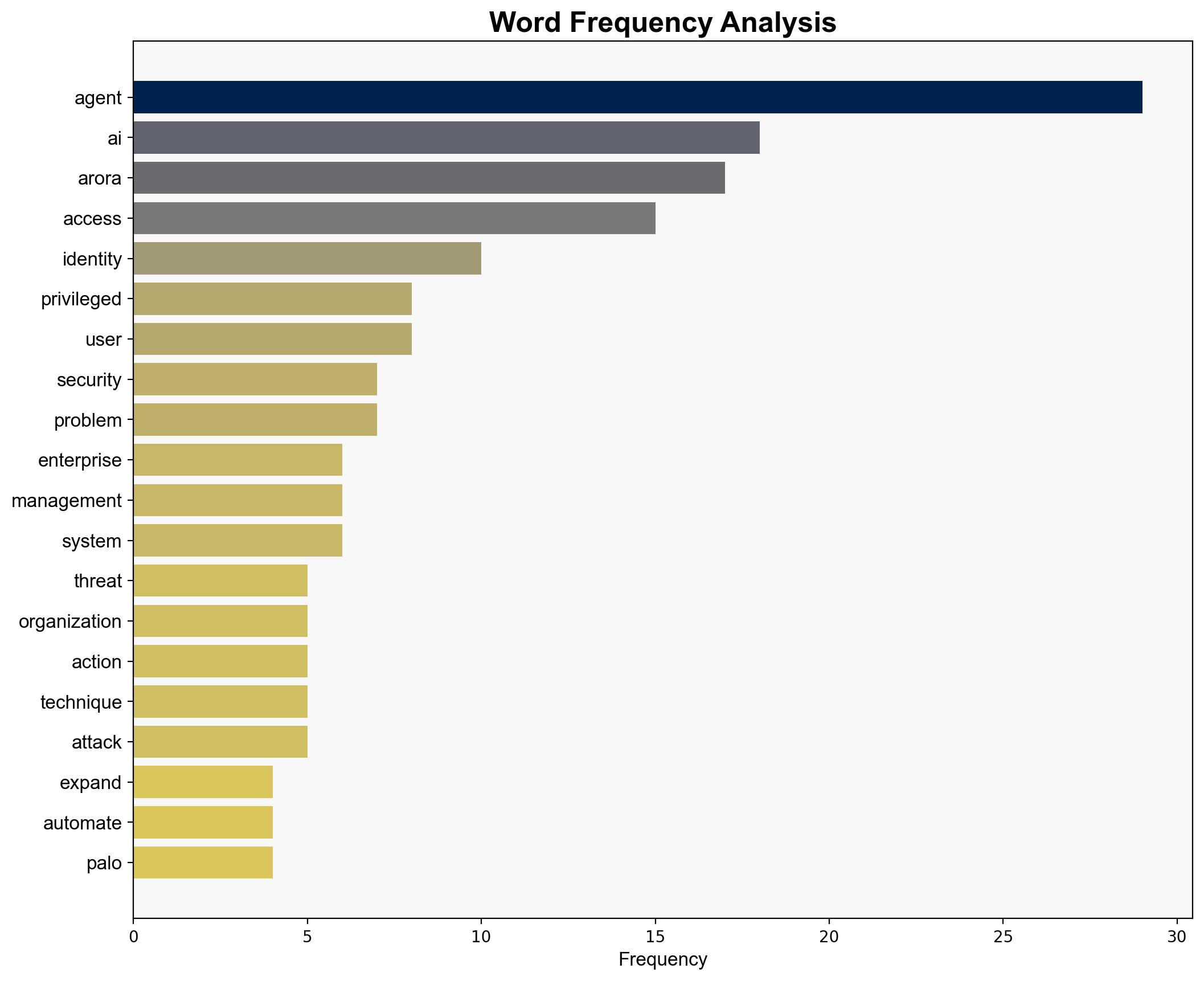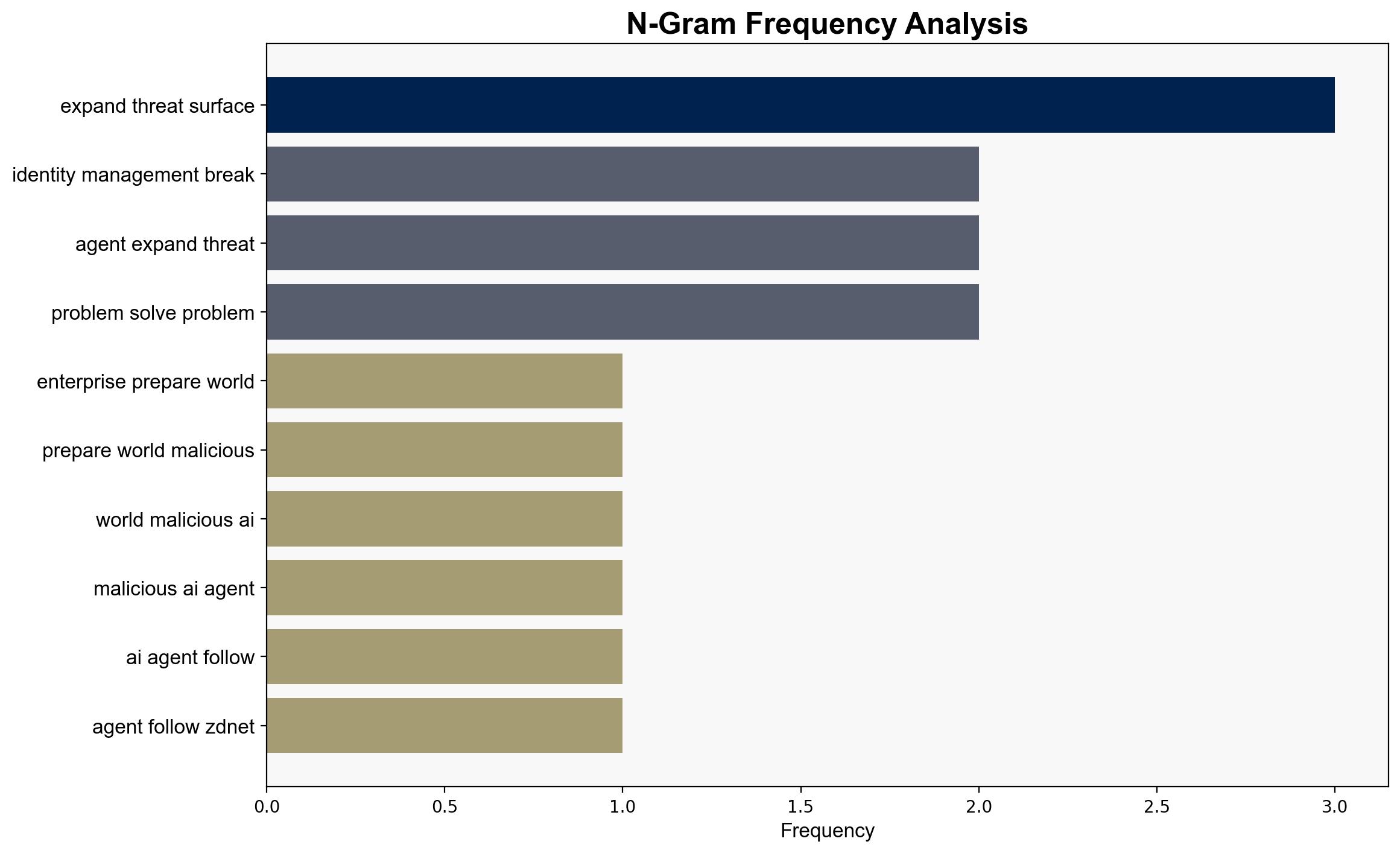Enterprises are not prepared for a world of malicious AI agents – ZDNet
Published on: 2025-11-03
Intelligence Report: Enterprises are not prepared for a world of malicious AI agents – ZDNet
1. BLUF (Bottom Line Up Front)
Enterprises are currently unprepared to handle the security challenges posed by malicious AI agents, primarily due to inadequate identity management systems and underdeveloped privileged access management techniques. The hypothesis that organizations are significantly vulnerable is better supported by the evidence. Confidence level: High. Recommended action: Immediate investment in AI-specific security infrastructure and enhanced identity management protocols.
2. Competing Hypotheses
1. **Hypothesis A**: Enterprises are unprepared for the threat of malicious AI agents due to inadequate identity management systems and a lack of understanding of AI agent capabilities.
2. **Hypothesis B**: Enterprises are adequately prepared for AI threats but are overestimating the potential risks due to media and industry hype.
Using the Analysis of Competing Hypotheses (ACH) 2.0, Hypothesis A is better supported. The source text highlights specific vulnerabilities, such as the lack of privileged access management and the complexity of AI agent orchestration, which align with the evidence of unpreparedness.
3. Key Assumptions and Red Flags
– **Assumptions**:
– Enterprises rely on existing security protocols to manage AI threats.
– AI agents will continue to evolve, increasing the threat surface.
– **Red Flags**:
– Over-reliance on traditional security measures may lead to a false sense of security.
– Lack of concrete evidence on the effectiveness of current AI security measures.
– **Blind Spots**:
– Potential underestimation of AI’s ability to self-improve and bypass security measures.
– Insufficient data on the actual frequency and impact of AI-driven breaches.
4. Implications and Strategic Risks
The expansion of AI agents poses significant risks, including increased vulnerability to cyberattacks, potential economic losses, and geopolitical instability. The integration of AI into critical systems without adequate security measures could lead to cascading failures and exploitation by malicious actors, including nation-states. The psychological impact on enterprise stakeholders could result in decreased trust in AI technologies.
5. Recommendations and Outlook
- Invest in AI-specific security infrastructure and develop comprehensive identity management systems tailored for AI agents.
- Conduct regular security audits and simulations to identify vulnerabilities and improve response strategies.
- Scenario Projections:
- Best Case: Enterprises rapidly adapt, implementing robust AI security measures, minimizing risks.
- Worst Case: Widespread AI-driven breaches lead to significant economic and reputational damage.
- Most Likely: Gradual improvement in AI security, with intermittent breaches highlighting ongoing vulnerabilities.
6. Key Individuals and Entities
Nikesh Arora
7. Thematic Tags
national security threats, cybersecurity, counter-terrorism, regional focus





